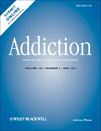IN SUPPORT OF SUBSTANCE USE DISORDERS
Charles O'Brien offers an interesting and challenging paper [1] describing the changes proposed for the substance use disorders section of the fifth edition of the Diagnostic and Statistical Manual of Mental Disorders (DSM-V). Among the important topics discussed is the use of the term ‘dependence’ to describe two different phenomena, uncontrolled drug-seeking behavior and the physiological adaptation that occurs when medications acting on the central nervous system are ingested with rebound when the medication is discontinued abruptly. One suggested alternative to this confusion is to use the term ‘addiction’ to describe the behavioral aspect of uncontrolled drug use and ‘dependence’ to refer only to the neurobiological state that results when patients are chronically treated with psychoactive medications.
The use of the term ‘addiction’ has led to concerns over stigmatization, because it highlights behavioral aspects more than reflecting a concept of disease. For example, in the National Household Survey on Addictions undertaken in Mexico in 2008, only 58% of the sample of more than 51 000 individuals agreed that addiction was a disease [2]. The World Health Organization (WHO) World Mental Health Survey showed that substance abuse disorders are under-treated with, for example, only 17% for those meeting 12-month criteria for abuse or dependence in Mexico receiving treatment in the past 12 months [3]. Khon & Rodríguez [4] estimated that in Latin America and the Caribbean more than three-quarters of individuals with alcohol disorders were not treated, as against only half of those with an affective disorder. Another concern with a definition that emphasizes the behavioral component of addiction is that societal responses to the problem will involve incarcerating people for using drugs instead of providing treatment.
O'Brien also stresses that another possible consequence of using the term ‘dependence’ is the under-treatment of pain for fear of producing ‘addiction’. According to the Narcotics Control Board [5], which oversees importation and exportation of internationally controlled medicines with an addiction potential, has reported large disparities in the use of opioid analgesics for medical purposes. Such use is almost non-existent in many countries and in entire regions, despite the availability of these products. In 2008, countries in Europe and four other high-income countries (Australia, Canada, New Zealand, the United States) accounted for more than 90% of global consumption of Fentanyl, morphine and Oxycodone. Other countries request lower amounts of these medications than their demography and cancer mortality would suggest. Among the underlying causes are the fear of diversion to illegal markets and of causing addiction in pain patients. These disparities can best be reduced by better differentiation between addiction and dependence in the sense of physiological adaptation to opioid use.
In Latin America the word ‘dependence’ is used more widely than addiction. It was, for example, used 19 times more often that ‘addiction’ in the titles of 271 989 published articles in the Scientific Electronic Library Online (Scielo), which compiles papers on health topics published on the region [6]. It is used to refer to both the behavioral components of addiction and the physiological adaptation to chronic drug use.
O'Brien also refers to concerns about the use of the term ‘abuse’. There is a case for the removal of the concept, because research does not support a category of disorder, as it is defined now, of abuse independent from dependence. When symptoms of dependence and abuse are analyzed together, legal problems are reported by people with many symptoms of dependence. This supports the deletion of ‘committing illegal acts’ from the diagnostic criteria. The WHO ICD term ‘harmful use’ (defined as a pattern of use that causes damage to physical or mental health and with no inclusion of social problems in the definition), that is also under revision, seems to be a better approach that is less affected by cultural variations in tolerance to the problem and thus in the probability of experiencing drug-related problems.
The evidence reviewed by O'Brien speaks in favor of removing the term ‘dependence’. I agree with the proposal to use the more global term of substance abuse disorders in DSM-V to improve the diagnosis and treatment of addiction and related disorders.
Declaration of interest
None.




